Fritextsökning
Artiklar per år
Innehållstyper
-

Konferens om läkemedelsformuleringar samlar branschen i Köpenhamn
Idag pågår den tionde upplagan av New Updates in Drug Formulation & Bioavailability 2022 i Köpenhamn.
-

Lucy Robertshaw: Did you know Stockholm wants to be in top 5 in the world for Life Sciences?
Karolinska Institutet Solna Campus has certainly become the next “Kendall Square”, writes Lucy Robertshaw in a column.
-

Sweden is heavily criticised for not ordering Covid vaccine
Valneva and the EU Commission have entered into an agreement for 1.25 million doses of the company’s Covid vaccine, but Sweden has not placed an order.
-

EMA startar granskning av vaccin mot apkoppor
Expertkommittén CHMP inom EMA ska undersöka om ett godkännande för Imvanex kan gälla även apkoppsviruset. Smittkoppsvaccinet Imvanex är idag godkänt inom EU för smittkoppor, en sjukdom som förklarades utrotad av WHO 1980.
-

Study: Our behaviour may have been guided by wishful thinking during the pandemic
A new study suggests that we systematically underestimate health risks if and when it suits us. This was especially true during the pandemic, as our risk assessments may have been guided by wishful thinking rather than a rational perception of the risks.
-
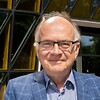
Göran Stiernstedt: “We are the world’s worst at continuity”
Failed investments in primary care, an unreasonable system with online doctors and a public failure at coordinating the healthcare IT system. Göran Stiernstedt does not mind his language when describing the shortcomings of today’s healthcare system. “It makes me extremely frustrated,” he says.
-

The first vaccine derived from cowpox
The British rural doctor could not forget the words of the peasant girl. Could that really be true? A couple of decades later, on 14 May 1796, he performed the world’s first smallpox vaccination, and a medical breakthrough had occurred.
-

Anna Törner: To kill your darlings
Hopes were high when Anna Törner and her colleague started a study on a dietary supplement that seemed unbelievably good. “Enthusiastically, we dreamed of exciting results and perhaps a publication in a high-impact journal,” she writes in a column.
-
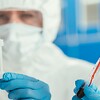
New rules for diagnostic products, but who will certify them? “An extreme shortage area”
In less than two weeks, new and stricter EU rules will enter into force for thousands of products used in important diagnoses of, among other things, cancer and Covid-19. However, not one single institute in the entire Nordic region is able to certify
-

Paolo Macchiarini in court – “The sole intent was to cure”
Paolo Macchiarini’s surgical procedure was illegal, life-threatening and caused severe and prolonged suffering to patients the prosecution claimed when the trial against the Italian surgeon began on Wednesday last week.
-

We will now publish more news in English – and offer yet another newsletter
Starting next week, Life Science Sweden will begin offering a newsletter entirely in English.
-
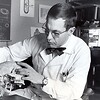
When carelessness, forgetfulness and coincidence become the researcher’s best friend
Forgetfulness, coincidence and a stroke of luck hardly make up a fruitful method of serious research. Or do they? Actually, a number of important medical advances have come about thanks to completely random incidents and the open-mindedness of scientists
-
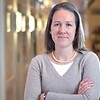
Lucy Robertshaw: Are we in the perfect storm?
“Is there a perfect storm on the horizon again as elective surgeries were cancelled due to patients being admitted with Covid-19? We now have a long backlog of people who are presenting with chronic diseases that need to access healthcare again”, writes Lucy Robertshaw in a column.
-

Björn Ursing: Physicians new role in AI driven healthcare
”AI could be the key we need for tomorrow’s healthcare, but it is not a stand-alone tool”, writes Björn Ursing in a column about how the role for physicians changes in the era of AI.
-
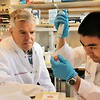
Elicera develops CAR-T against solid tumours – may become the first in the world
Today, there are five EU-approved CAR-T therapies, all focused on different types of blood cancer, but no one has yet succeeded in making the method work against solid tumours. At Gothenburg-based Elicera, they are working relentlessly to succeed in that field as well. “It is the largest field, and the potential is enormous,” says the company’s CEO Jamal El-Mosleh.
-

Samuel Lagercrantz: Immunotherapy against cancer is still in its early stages
For more than 100 years, researchers have tried to target the body’s own immune system to fight cancer cells. They have occasionally been laughed at and ridiculed by the medical establishment. However, from our perspective today, we can sum it up with the saying: He who laughs last laughs best, writes Samuel Lagercrantz in an editorial.
-
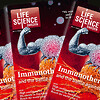
Life Science Sweden´s international issue is on its way
A new issue of Life Science Sweden is on its way to print, packed with news, interviews and reports.
-
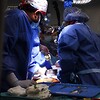
Patient som fick grishjärta återhämtar sig – inga tecken på avstötning
Den amerikanske man som fick ett genmodifierat grishjärta transplanterat i början av året återhämtar sig fortfarande på sjukhus. Efter fem veckor syns inga tecken på avstötning, enligt läkare.
-

“Together Stockholm-Uppsala and Medicon Valley can make Scandinavia a leading life science region”
“Denmark, Sweden, Norway and Finland all have national life science strategies, but the Swedish strategy is the only one explicitly emphasizing the Nordic dimension. But what if the leading life science nations, Denmark and Sweden, joined forces, took
-

The route to vaccines for everyone: “We did not just sit around and wait”
The pandemic was in full swing, and no one knew when or even if a vaccine would come. At that point, the Swedish Minister of Social Affairs called with a proposal, and Richard Bergström did not hesitate. “I already had a notion that this would work,” he
-

Lockdown-studie kritiseras även i USA
I USA har den uppmärksammade metastudie som uppger att knappt några liv har räddats med hjälp av lockdowns blivit kraftigt ifrågasatt av forskare.
-
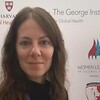
Giulia Gaudenzi: Innovation for good
"I challenge the innovator landscape to take a mental leap. Relying on innovation-solely to end inequality is not enough, therefore consciously and purposively – we need to engage bravely with the politics of poverty and scarcity. Even in life sciences", writes Giulia Gaudenzi in a column.